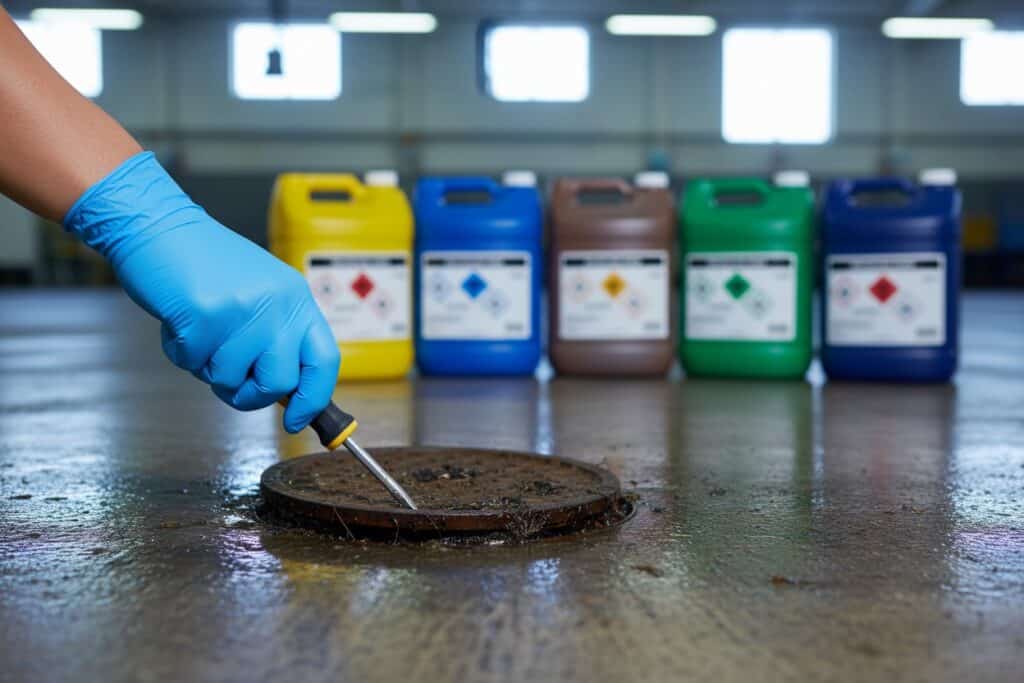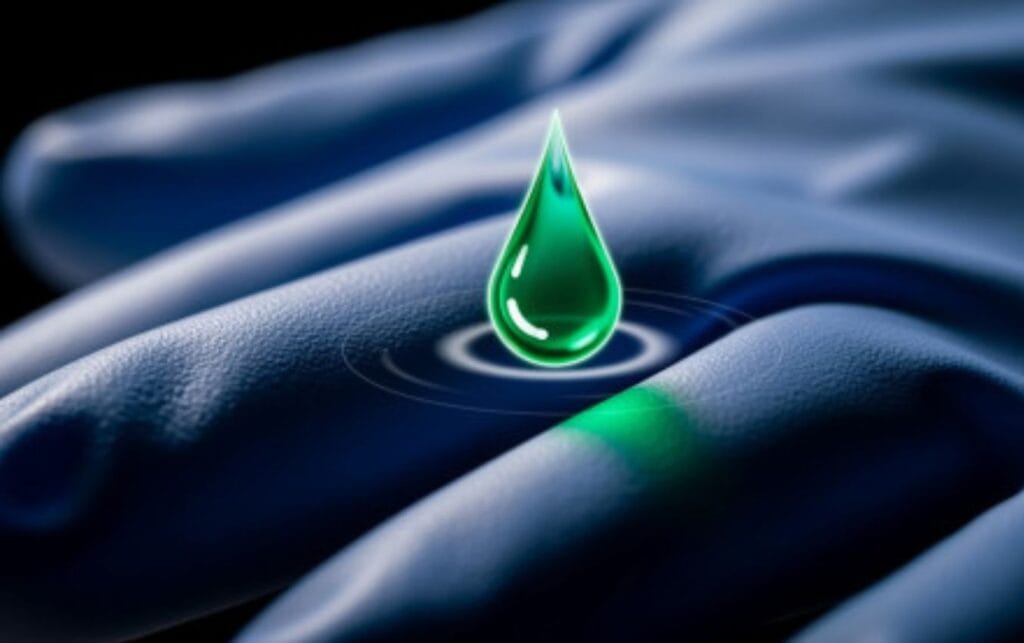Nitrile Gloves Information
Best Disposable Gloves for Sensitive Skin
Do your hands get red, itchy, or sore after wearing disposable gloves? You are not the only one who struggles with this common and uncomfortable problem. This guide will help you understand why it happens and show you how to find the perfect gloves to keep your hands safe and comfortable. Hands in Harmony: Understanding…

Understanding Nitrile Gloves and Oil
Nitrile rubber’s chemical structure blocks oil.
It’s made to resist petroleum products, forming a barrier that slows chemicals from passing through. This keeps oils and grease out, so nitrile gloves last longer than other disposables.

Which physical factors of nitrile gloves affect chemical breakthrough time?
We use nitrile gloves to protect our hands, but how well do they really work against chemicals? It’s not as simple as grabbing any box off the shelf.

Do Nitrile Gloves Cause Cancer? Alternatives and Info
Some people believe nitrile gloves may cause cancer due to concerns about the chemicals used in their production, particularly acrylonitrile, a potential carcinogen. However, nitrile gloves are generally considered safe for use. Misunderstandings about chemical exposure and misinformation can contribute to these fears.

6 Tricks to Enhance Grip with Nitrile Gloves
You can significantly improve your grip with nitrile gloves by using six tips. Choosing the right size, applying liquid grip solutions, and considering texture are key methods that enhance safety and efficiency, allowing for more effective work.

Can You Cook with Nitrile Gloves?
Using nitrile gloves in the kitchen depends on your needs. They offer a strong barrier against contaminants, meet FDA safety standards, and provide good grip. Although they have limitations like low heat resistance and environmental impact, proper use can enhance food safety. Consider the pros and cons to decide if they fit your cooking routine.